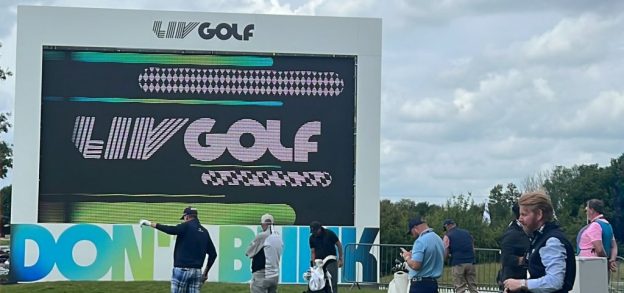Drew Dymowski – On June 6, 2023, the golf world received the shocking and unexpected news that an agreement had been made by the two largest competitors in professional golf: the PGA Tour and LIV Golf. The agreement was reached almost a year after LIV Golf filed an antitrust suit against the PGA Tour. There have been mergers in professional sports before, such as the AFL merging with the NFL in the 1960s and the ABA merging with the NBA a decade later. However, those mergers occurred over 45 years ago when professional sports were not seen as the big businesses that they are today.
For nearly a century, the PGA Tour has unequivocally been the premier professional golf league in the world. Winnings on the PGA Tour are structured based on individual performance in tournaments. Simply put, the better a golfer performs and the higher they finish, the more money they will make. However, in 2022, LIV Golf took professional golf by storm by offering notable professional golfers, including former major champions Phil Mickelson, Brooks Koepka, Cam Smith, and Dustin Johnson, guaranteed contracts in the hundreds of millions of dollars to leave the PGA Tour. The commissioner of the PGA Tour, Jay Monahan, immediately responded and stated that any player who left the PGA Tour to join LIV Golf would be permanently banned from playing in any future PGA events, thus, officially beginning the rift between the two leagues. In August of 2022, a number of golfers who joined LIV Golf filed a complaint against the PGA Tour alleging various antitrust violations. The litigation was ongoing at the time the agreement was announced on June 6, 2023.
Standing in the way of any potential agreement is approval from the Department of Justice’s antitrust regulators. It is unknown whether the agreement between the PGA Tour and LIV Golf is an actual merger or just a partnership. However, antitrust law does not differ based on how the agreement is structured. The key question antitrust regulators will analyze is whether the agreement eliminates competition in a particular industry.
The general antitrust principal at issue here is the illegality of merging into a monopoly. Under recent administrations, antitrust regulators have become more vigorous in blocking potential mergers that would result in the creation of a monopoly. Recently, an attempted merger between American Airlines and JetBlue was blocked by antitrust regulators because it would have substantially diminished competition in the domestic airline industry. At this point, it is uncertain whether antitrust regulators will find that the agreement between the PGA Tour and LIV Golf eliminates competition as LIV Golf has only been in existence for a few years. On its face, the agreement appears problematic, because the PGA Tour, an established monopoly, is eliminating an “upstart challenger” from the professional golf market.
Currently, the proposed merger is under investigation by the Department of Justice and the deal is not expected to be finalized any time in the near future. Along with the aforementioned government probe, PGA Tour players, including Tiger Woods and Rory McIlroy, are also playing a role in delaying the merger. When the merger was originally announced, PGA Tour players had no prior notice and felt completely blindsided by the deal. Now, the PGA Tour players have been heavily involved in negotiations with the goal of acquiring a stake in the newly formed entity to prevent being blindsided again. In all the uncertainty concerning this merger between the PGA Tour and LIV Golf, one thing is clear: if the PGA Tour had lost its monopoly status with the formation of LIV Golf, this agreement will certainly reestablish that monopoly.


